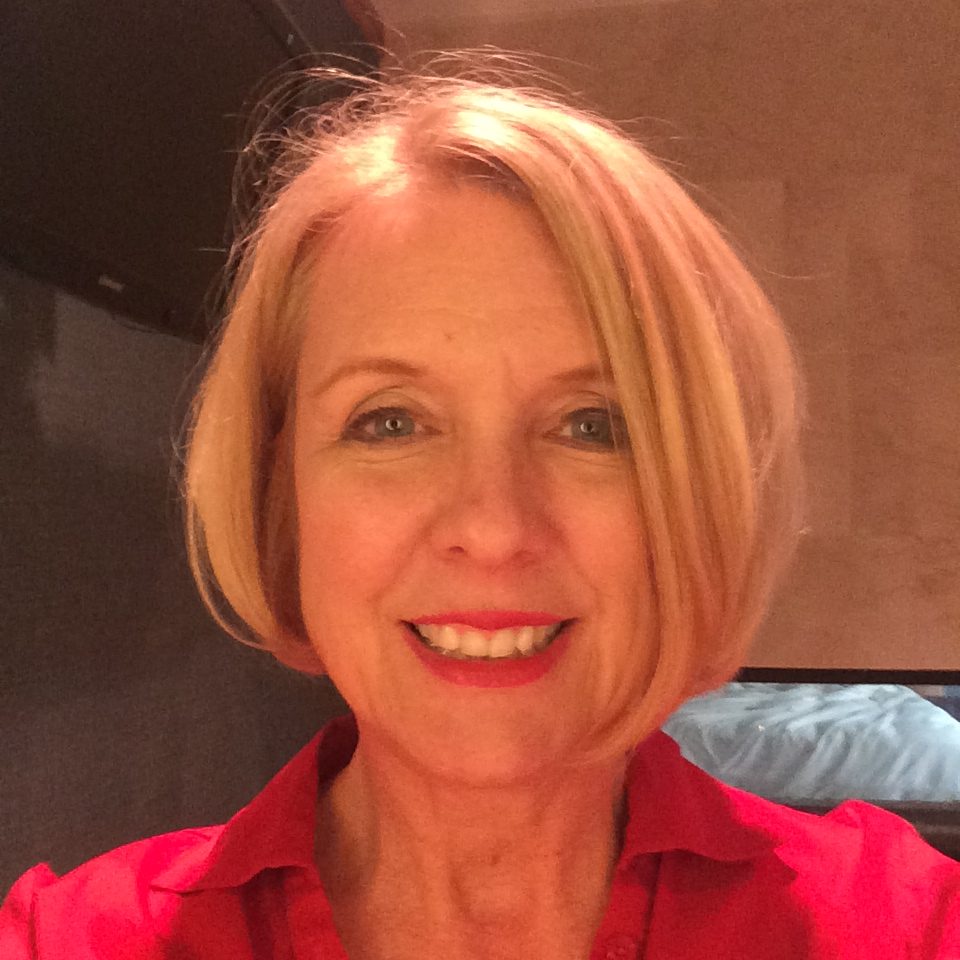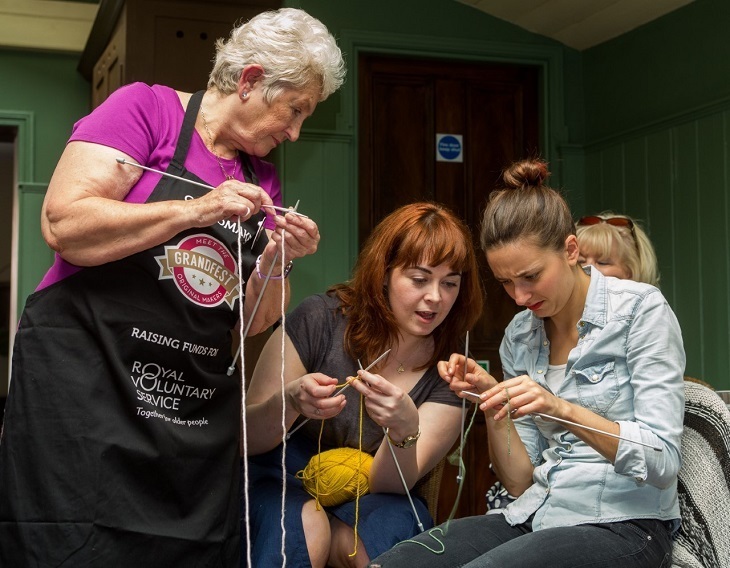Six years ago, Laura Rich signed up for a continuing education class in Chinese art history and archaeology at Stanford University. Her children were grown and she was wrapping up a full-time stint on the local school board.
“Most of my life, I thought history was boring, but a trip to Shanghai sparked my interest,” said Rich, 58, of Menlo Park, CA. “And I felt like my mind was stagnating a little.”
The class completely changed her life: she is now an archaeologist. Before the pandemic, she traveled to Europe twice a year for months-long digs in Italy and England. She has continued to educate herself through other classes at Stanford, lectures, conferences and online courses. As she dug deeper into her subject, she discovered she could tackle dense books that would’ve seemed impenetrable before. (“It’s like my brain turned back on,” she said.) Recently, she was elected vice president for outreach and education for the Archaeological Institute of America.
“If you had told me 10 years ago that I’d be doing archaeology full time, I would’ve fallen over laughing,” she said. “Yet I absolutely love it.”
Learning as Reinvention
Rich’s story is dramatic, but one that Ken Dychtwald believes will become more common in the coming years. He lists “more learning” as one of the key ways life will change for older adults in the years ahead, in his new book, What Retirees Want: A Holistic View of Life’s Third Age (2020), which he co-wrote with Robert Morison..
“Lifelong learning may be the most important ingredient in determining the way people age,” said Dychtwald, who is CEO of Age Wave, a company that conducts research on aging populations. “If you’re living in a world that’s moving along very slowly, you go to high school and college, and that education lasts you for life. That world is long gone. In the future, there will be more learning and more of the personal development, fulfilment and untapping of potential that goes with it.”
Many people associate “lifelong learning” with enrichment classes that cater to the interests of retired people—such as a course in photography or gardening. But today, older adults can choose from a rapidly expanding menu of educational options that allow them to pursue hobbies, grow professionally or even embark on new careers.
For example, the Bernard Osher Foundation’s Lifelong Learning Institutes, launched in 2002, support 124 programs, geared primarily to older adults, on university and college campuses across the country.
The Road Scholar program, formerly Elderhostel, offers thousands of “learning adventures” in 150 countries (before the current travel restrictions imposed by the pandemic).
Some universities are adding innovative, full-time, residential programs for older adults.
Massive open online courses (MOOCs) allow students of any age to learn about almost anything, on their own timelines, often for free. Emerging in popularity in 2012, MOOCs are offered by providers like Coursera, Khan Academy, edX and FutureLearn.
While college campuses have offered continuing education classes for decades, Dychtwald expects that will explode after the pandemic.
“Older learners enjoy being in classrooms with people of all ages,” he said. “After we get this virus in the rearview, I think you will see a surge in campuses—at churches, community centers, senior centers, summer camps, museums—that become learning environments for people in later years.”
Some universities are even adding innovative, full-time, residential programs for older adults who are starting second careers or looking to move from the profit to the nonprofit world, according to Mark Silverman, CEO of Amava.com, an online platform connecting older adults to online learning, jobs and volunteer opportunities.
He cites the Stanford Distinguished Careers Institute as an example. The Institute brings midlife students to Stanford to attend classes with undergraduate and graduate students and to participate in campus life, with the goal of enabling individuals in midlife to renew their purpose, build a new community and enhance their physical, emotional and spiritual health.
Silverman believes such programs are the natural outgrowth of people living longer.
“Many people want to continue to work after they reach retirement age, and money is often not the main motivator,” he said. “Now they have this opportunity to rethink everything. They don’t need to limit their opportunities based only on the experiences they had in the past. You can still develop new skills at this age.”
Learning for Employability
For those still working, lifelong learning is a way to stay relevant. Judy Brown, 60, of Dallas, TX, worked in marketing jobs for most of her career. But when she took a new job several years ago, she needed to upgrade her skills to help market the company’s products online. With help from a colleague, and the online platform Lynda.com, she taught herself digital skills like search engine optimization.
“I was in a job I didn’t know how to do; Lynda.com saved my life,” said Brown, who later parlayed her new skills into another, higher-paying job.
Working older adults like Brown have more options now, because education has become more consumer-friendly and modularized in recent years, said Bradley Staats, associate professor of operations at the University of North Carolina’s Kenan-Flagler Business School and author of Never Stop Learning: Stay Relevant, Reinvent Yourself, and Thrive (2018).
While a young person may opt for a degree program’s broad education and credentialing, someone in midlife likely needs training in specific skills. Higher education institutions are serving the latter group with more specialized online courses and certificate programs.
“Universities are breaking up that education into pieces,” Staats said. “If you don’t want to spend two years full time, earning an MBA, maybe you take a one-year certificate program in data analytics online instead.”
Bethany Ross, public services librarian at the Plano Public Library in Plano, TX, sees older adults profiting from those options.
Expect COVID-19 to further shake up the online learning space and make it more relevant.
“I helped one older woman who came into the library at night to learn Excel, because she had started a new job and her skills were rusty,” she said. “Another taught herself Canva [a website design platform] to launch a small business selling socks on eBay.”
Ross, 50, turned to Lynda.com to learn PhotoShop and refine her skills in Excel—two software platforms she uses for her job that weren’t taught in her master’s degree program in library science.
Ross thinks COVID-19 is spurring older adults to become more adept with online platforms. When the pandemic closed the library’s buildings, the staff moved a book club, which normally met in person, to Zoom.
“We worried that our older members wouldn’t be able to join us online, but most of them found a way to join us,” she said.
Expect COVID-19 to further shake up the online learning space and make it more relevant, added Fred DiUlus, 78, founder of Global Academy, which helps universities launch online programs.
“When Harvard said that existing students would be taught the same courses, all online, this fall, without reducing the cost of tuition, that dispelled some of the prejudice against online learning,” he said.
Joys of Learning
Paul Irving, a former lawyer in Santa Monica, CA, who chairs the Milken Institute Center for the Future of Aging, thinks everyone should return to school at some point later in life.
“There’s something magic about being on campus,” he said. “It starts with feeding intellectual curiosity, challenging oneself, and realizing the joy of learning. And returning to school can be a huge confidence builder—confidence both in what you know and in how much you learn.”
Lifelong learning addresses many challenges related to an aging population. Researchers point to a “sense of purpose” as a key ingredient of successful aging and even longevity. One study by Age Wave and Edward Jones identified “purpose” as one of four pillars of successful retirement (along with health, finances and social connections).
Purpose, the study said, includes giving back to the community, enjoying time with family, as well as “trying new things, developing new abilities and meeting personal goals—intellectual, artistic, athletic.” In other words, learning. In that same study, 95 percent of retirees polled agreed that “It’s important to keep learning and growing at every age.”
More than 50 colleges and universities around the world are collaborating as they look for ways to become more welcoming to older adults.
Just as physical exercise keeps the body functioning and healthy, experts believe that learning exercises the brain in a way that helps keep it healthy. One study showed that acquiring a complex new skill—like digital photography or quilting—led to improvement in memory; another suggested that learning a second language, even later in life, may slow age-related cognitive decline.
“Engaging in learning helps protect our brains from atrophy, and when we’re learning, we are more likely to express greater happiness and greater satisfaction overall, as a result of staying engaged in that way,” said Staats.
Another benefit of learning: social connections. Strong social connections have been linked with physical and mental health for older adults. Taking a class can boost social skills and self-confidence.
“I have a whole new set of friends who I would not necessarily have connected with before,” said Laura Rich, the archaeologist. “I’ve lived in this town for decades and I knew many people, but this new interest has brought me together with people from different worlds and lifestyles that I would never have met without pursuing something new and opening myself up to something new.”
Age Diversity on Campus
These new options in learning are opening new opportunities for reinvention, continuing participation in the workforce and social engagement. But some older adults face obstacles.
Many, especially those 75 and older, aren’t tech savvy and don’t have access to smartphones, computers or Wi-Fi. Those with limited mobility can’t always attend in-person classes. And older adults often don’t feel comfortable in traditional classes at universities, where the student populations generally remain age segregated.
Some universities are looking to change that, by pursuing ways to include older people as part of their commitments to welcoming people of all backgrounds. Bringing more older adults to campus could also help keep classrooms filled and tuition dollars flowing.
More than 50 colleges and universities around the world have joined Age-Friendly University, a global network founded in 2012 at Dublin City University to collaborate on ways to become more welcoming to older adults. Washington University in St. Louis, MO, joined the network in 2018, with a stated vision that “Later life will be viewed as a time of active engagement, learning, and purpose, as opposed to current perceptions of stepping back and diminishing relevance.” While still in its infancy, the Washington University program aims to add new courses, certificate programs, workshops and events tailored to the needs and interests of older adult learners.
Bringing older adults on campus, too, could enable institutions of higher learning to participate more actively in shaping a society that includes a growing segment of older adults. Efforts to address issues related to population aging will be inhibited if students, classrooms and research training remain age-segregated, according to a study published in the Gerontologist, “Making the Case for Age Diversity on Campus.”
Irving, of the Milken Institute, says that’s key. Encouraging more learning among adults won’t just help individuals age successfully; it will enable societies with large, aging populations to thrive.
“Wise and knowledgeable populations will distinguish countries and societies in the decades to come,” he predicts. “Those countries that figure out ways to reeducate, reskill and continue to challenge and engage their older populations are the countries that will succeed.”

Freelance writer Mary Jacobs lives in Plano, TX, and covers health and fitness, spirituality, and issues relating to older adults. She writes for the Dallas Morning News, the Senior Voice, Religion News Service and other publications; her work has been honored by the Religion Communicators Council, the Associated Church Press and the American Association of Orthopaedic Surgeons. Visit www.MaryJacobs.com for more.



